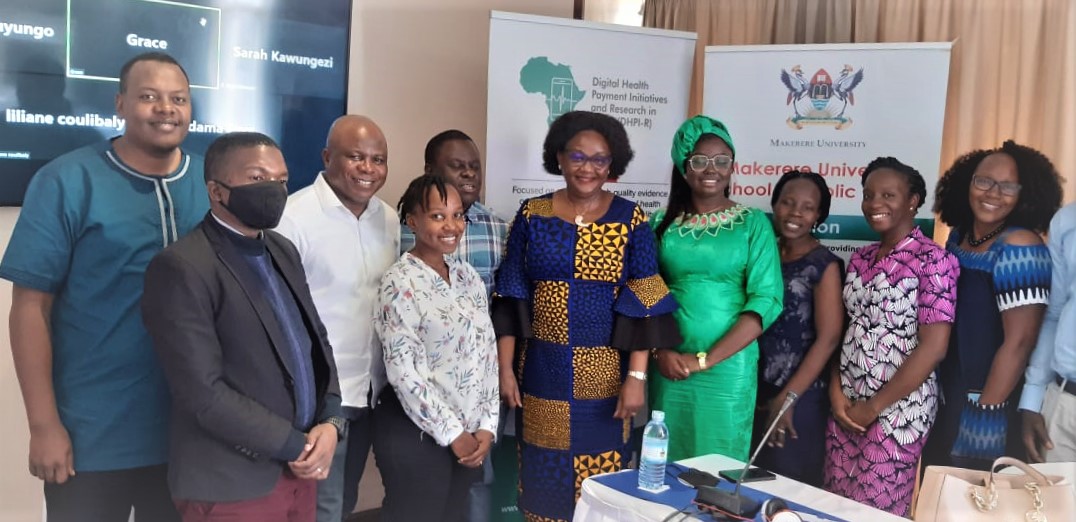(L-R): Dr. Arthur Bagonza (DHPI-R), Opio Charles (DHPI-R), Mr. Akubo Adegbe (SCIDaR), Ashaba Maggie (DHPI-R), Prof. Peter Waiswa (DHPI-R project director, Prof. Rhoda Wanyeze (Dean MaKSPH), Dr, Dr. Fatoumata Zahra Coulibaly (UCAD, Dr. Ekirapa Elizabeth Ekirapa (DHPI-R Anglophone Hub director), Ms. Liliane Coulibaly (SCIDaR) and Dr. Suzanne Kiwanuka (DHPI-R)
Digital Health Payment Initiatives and Research in Africa (DHPI-R), a project at Makerere University School of Public Health and the University of Dakar in Senegal has successfully conducted a four-day hybrid partner’s workshop from 12th to 16th June 2022 at Golden Tulip Hotel in Kampala Uganda.
The workshop was the first hybrid (virtual and face to face) meeting held by the two countries to agree on working modalities and to consolidate the partnership. It also sought to finalize the project research agenda, address implementation challenges, revise the project’s operational guidelines, as well as discuss the project’s next steps. The hybrid workshop was attended by teams from the Solina Centre for International Development and Research (SCIDaR) in Nigeria, the University of Dakar in Senegal, and the hosts, Makerere University.
In his welcome remarks, Dr. Peter Waiswa, Associate Professor and DHPI-R Project Director noted that the workshop was a great opportunity to build teams and putting face to names and breaking the virtual interaction faction that had been facilitated by the pandemic for all teams from Uganda, Senegal and Nigeria.
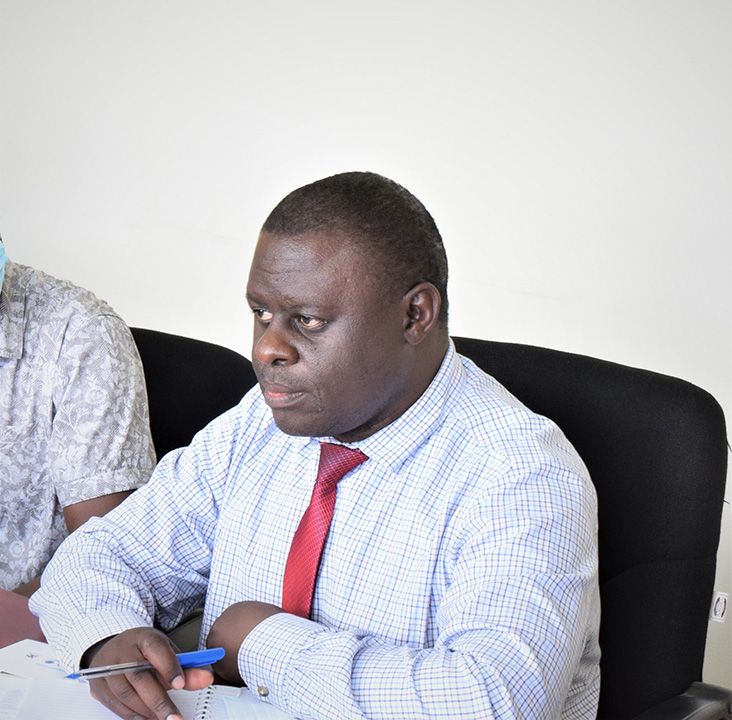
“After this workshop is done, there will be less need for weekly meetings because it is intended to reduce the number of questions and areas of confusion across partners in this collaboration. In other words, they will be able to understand more about the Digital Health Payment Initiative and Research in Africa center of excellence and their role in its development,” Prof Waiswa said.
He also emphasized that this meeting will help the teams to streamline the modalities of publications and how can the project balance authorship to include the rest of the team in the publications.
Dr. Waiswa requested the SCIDaR team to prepare an update on digital payments projects and ongoing work in Africa citing that this project context had been influenced by the COVID-19 pandemic as well as the integration of the gender aspects during its implementation.
The session on developing the research agenda was facilitated by Dr. Suzanne Kiwanuka, a Senior Lecturer in Health Policy Planning and Management at Makerere University School of Public Health, and the DHPI-R project technical advisor. Areas of consideration for the research agenda included agreeing on the motivation for the research agenda, the population of Focus, the timeframe, as well as the intended audience by the end of the workshop.
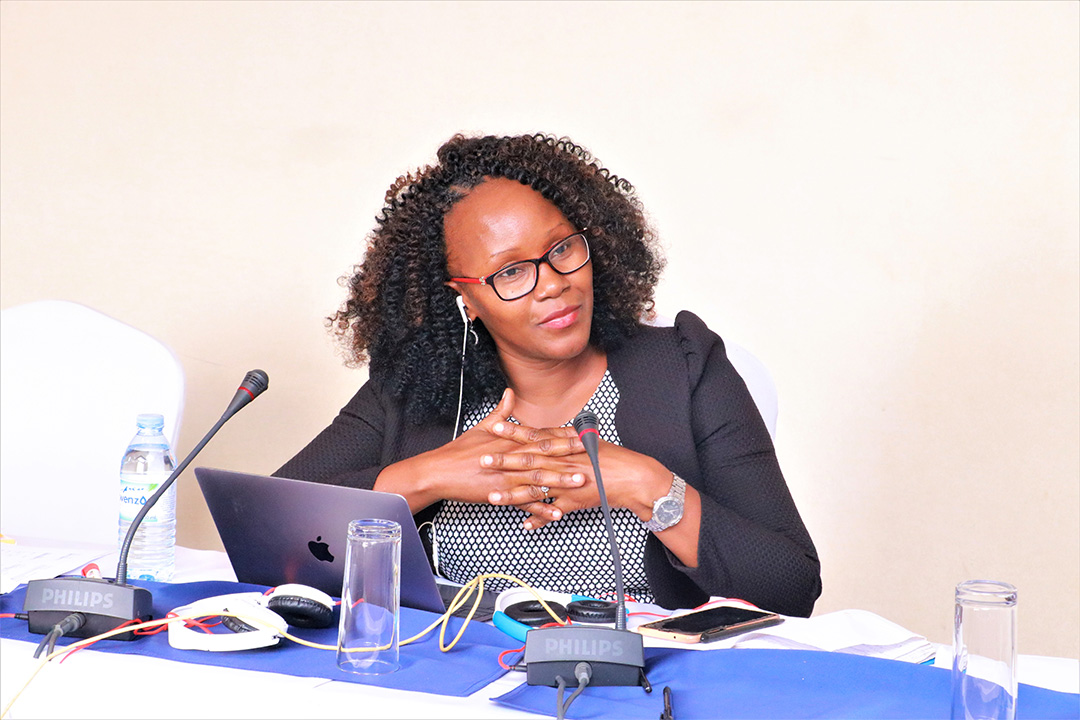
To achieve this, an extensive list of research questions already generated via the broad landscape analysis in both anglophone, and francophone countries was presented. Prof Waiswa proposed scoring criteria for the research agenda following the answerability which had to tackle the robustness and extent to which the anticipated evidence or the intervention is relevant and or can be implemented ethically.
In addition to the above, breakaway sessions with various DHPI-R participants were also conducted to prioritize questions in the research agenda.
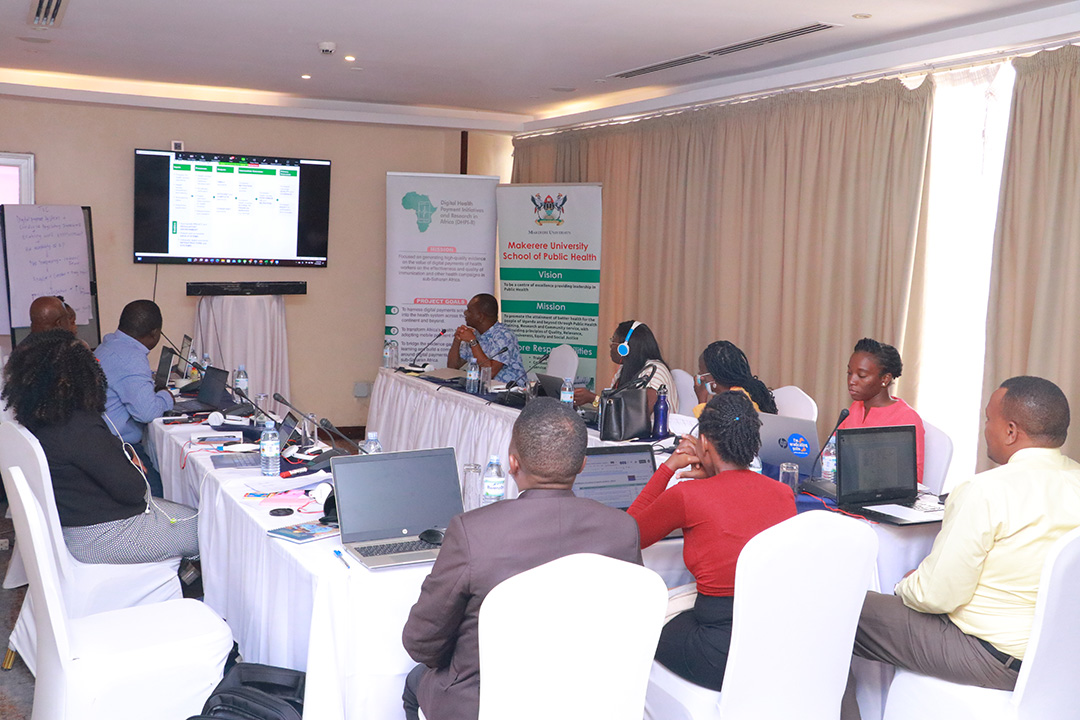
Speaking at the workshop, Dr. Elizabeth Ekirapa, the DHPI-R Anglophone Hub director further suggested scalability/deliverability, impact/efficacy project, generalizability, and speed in terms of the likelihood that the new knowledge can be generated in within one and a half years. The project participants managed to review the progress of the project against the workshop objectives and outlined the results achieved, challenges, and lessons learned throughout the workshop sessions.
Dr. Rhoda Wanyenze, Professor and Dean of MakSPH graced the workshop on the very last day, and in her closing ceremony remarks, she noted that since digital payments have taken root in Africa and we need to be at the forefront globally and at the forefront in generating evidence and fostering dialogue among key stakeholders.
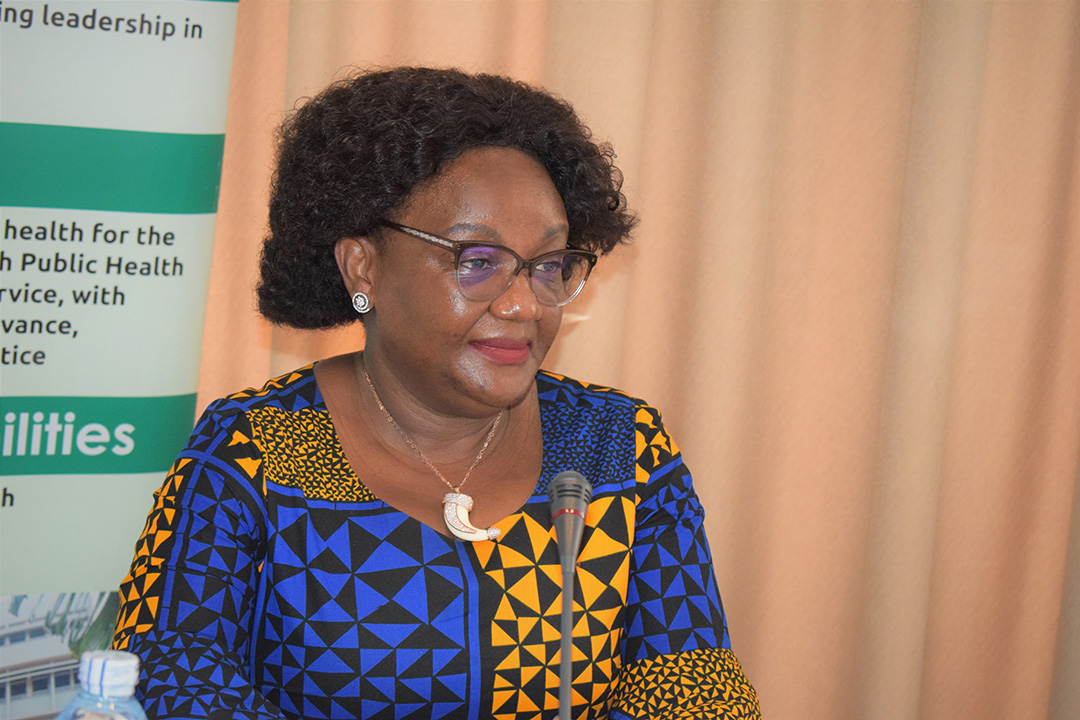
“It’s so important when building partnerships, with the SCIDaR team, the overseers of the project led by Mr. Akubo Adegbe we are so grateful to you for doing the gentle push so that the project delivers quality so as the University can continue getting funding from the Gates Foundation,” Remarked Prof. Rhoda.
“I am looking forward to seeing the Digital Payments Centre of Excellence taking root and happy that we are going to have a coordinated research agenda that is built around the theory of change because that will represent where we want to go in terms of sustainability, Prof. Wanyenze further said.
On his part, Professor Adama Faye, the Francophone Hub Director at the University of Dakar hailed the organizers of the workshop and he was glad to participate in this workshop at the right time.
“You know, implementing a project in two different geographical areas is not easy and requires serious coordination and a harmonious understanding of approaches and objectives. He said that this workshop allowed us to meet with our collaborators and move forward on essential aspects of the project,” Professor Adama observed.
According to Professor Adama, operational guidelines, research agenda, and financial issues, among several other areas have been adopted with specific recommendations that have allowed the project teams to improve the approach in the French-speaking hub per the English-speaking hub and the donor's expectations.
He thanked the Gates foundation for initiating this innovative project and the partners Makerere University School of Public Health and the SCIDaR group for collaborating with them.
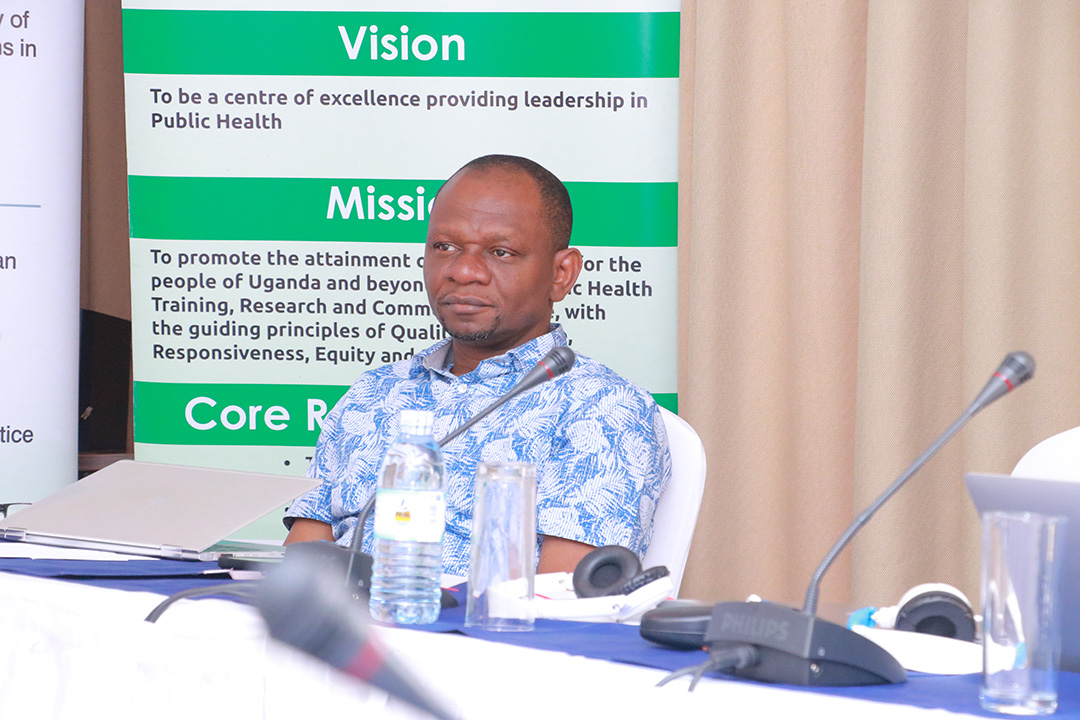
Dr. Muyi Aina the Executive Director of SCIDaR expressed gratitude towards the built partnership of Makerere University and the University of Dakar and to SCIDaR in Nigeria by extension.
“I understand this workshop was designed to do several things, one was to foster collaboration and interpersonal relationships among the partners and to improve team effectiveness during the research agenda process that encouraged contribution from all the participants and to my assessment, I think this was achieved,” expressed Dr. Muyi.
The DHPI-R project is looking at building capacity among African institutions, building the body of knowledge in digital payments across Africa, and fostering better collaboration between the Francophone and Anglophone researchers though at the beginning it was slow, I am happy that the project has gained momentum and taken its right shape…. Dr. Muyi.
On the whole, this was an intensive yet interactive four-day workshop, and participants had a lot of positive feedback on the whole process.
